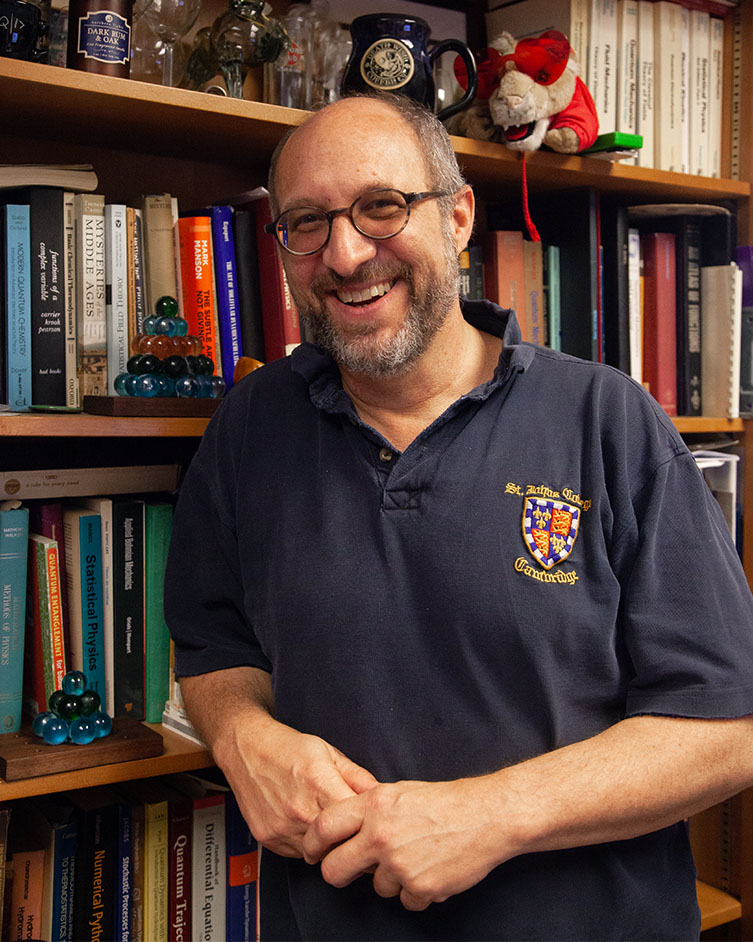Chemistry Professor to Work as Visiting Scholar at Lab’s Center for Nonlinear Studies
Beginning July 1, Eric Bittner, Moores Professor of chemistry with a joint appointment in physics at the University of Houston, will start his year-long appointment as the 2023 Ulam Scholar at Los Alamos National Laboratory in Los Alamos, New Mexico.

Bittner will conduct research at the laboratory’s Center for Nonlinear Studies (CNLS) as a visiting scholar. He will provide a series of three to four lectures to the research community and gain insight and knowledge from resident scientists. The Ulam Scholar position is offered to world-class scientists in the fields of theoretical physics, biology, chemistry, mathematics and computational sciences.
The national laboratory provides the visiting scholar the opportunity to bring postdoctoral researchers and graduate students. Nosheen Younas, physics Ph.D. student, will spend this summer at Los Alamos conducting research. Bittner plans to reside in Los Alamos from January 2023 through June 2023.
“I’m excited,” Bittner said. “There are some big-name scientists who were named Ulam Scholars in the past. The CNLS provides a stimulating environment to deeply explore complex physics that somehow has connection to both foundational science and ‘real-world’ problems.”
The CNLS is an interdisciplinary institute within Los Alamos National Laboratory that was largely founded by Stanislaw Ulam, a Polish American scientist and mathematician, who is one the founders of what is now called nonlinear science. Researchers at the center study complex interactions and systems. Bittner explains these systems are not constrained to only physical and biological systems but can include traffic jams, telecommunications and even social networks.
Tools to Create Quantum Encryption
Bittner’s work will focus on the steady states of quantum materials that are driven out of equilibrium by external stimuli, such as a laser field. Bittner specializes in systems in which the coupling between matter and radiation is considered to be “strong” and the resulting system is both photon-like and matter-like.
The research could help the development of single photon emitters and strong quantum emitters, which are tools used in optical fibers that can be used for quantum communication.
Quantum encryption, Bittner said, is the most secure form of encryption. Quantum encryption is made possible through a phenomenon called quantum entanglements where particles interact in a way that you cannot tell the difference between one particle and another.
“If you can make all your important communications entangled, quantum mechanically, you have impenetrable security,” Bittner said.
Of course, security is of utmost importance at Los Alamos National Lab, where the world’s first atomic bombs were developed and whose stated mission is to safeguard our nation’s nuclear stockpile. Bittner’s work at the lab is not considered to be classified.
He looks forward to beginning his appointment as he has teamed up with Los Alamos researchers for more than 20 years. He discussed the Ulam Scholar position with his collaborators for a long time. The 2022-2023 academic year was the perfect time in his personal and professional life to take the opportunity, he said.
- Rebeca Trejo, College of Natural Sciences and Mathematics